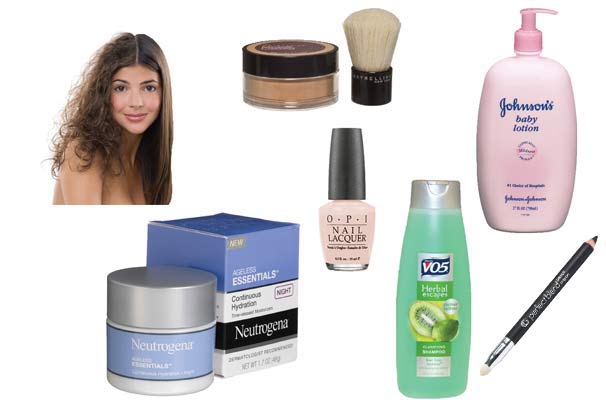
Makeup plays an essential role in most women’s lives and is a major part of their daily routine. However, women are not aware of the hazardous chemicals in makeup that can cause significant skin and health issues.
Cosmetics are the least regulated products under the Federal Food, Drug and Cosmetic Act. In fact, the FFDCA does not require pre-market safety testing, review or approval for cosmetics.
In 2008, the Environmental Working Group tested 7,500 beauty products and found that 80 percent of them contained 146 chemicals linked to cancer — known as carcinogens — which can also be found in smog and car exhaust.
“There are many synthetic chemicals used in makeup,” said NYU Langone Medical Center’s Leonardo Trasande, M.D., who is a professor in the department of environmental medicine. “The federal regulation in place for screening chemicals before widespread use dates to 1976 [the Toxic Substances Control Act] and provides weak power to the Environmental Protection Agency to require testing for potential toxicity.”
Dermatologist Jennifer Wong adds that she has seen patients who encountered skin problems from expired products as well as new products.
“Many people come in for contact dermatitis. The irritation of the skin can range anywhere from mild redness, bumps and itching to urticaria or hives,” said Wong.
Wong cites acne, rosacea, atopic dermatitis and psoriasis as skin conditions that can occur due to several ingredients in makeup.
Wong also advises avoiding additives and other chemicals in beauty products which can be potentially dangerous.
“Stay away from fragrances, dyes and alcohol-based products especially for atopic skin. From my experience, Nair hair-removal seems to create a lot of problems with my patients’ skin,” said Wong.
Wong recommends products that are “non-comedogenic” — or those that do not clog skin pores, drinking more water and incorporating a well-balanced diet filled with fruits and vegetables to help maintain a healthy lifestyle.
Although problems remain, Steven Hall, a makeup artist at LiSi Cosmetics, said that makeup has come a long way over the years.
“A lot of formaldehyde used to be used, but they have cleaned that up,” said Hall. “Makeup and hair products tend to have a lot of different chemicals that I can barely pronounce, but now everyone is so conscious and aware that nearly everything has changed back to being free of all of those things, even our line here.”
Hall also warns that makeup has a shelf life of about a year and advises researching the ingredients in makeup products before using them.
Gallatin sophomore Deanna Cohen, who wears makeup daily, said that even being aware of the dangers of makeup will not keep her from her daily routine.
“I wish I could say that it could change my makeup-wearing [habits], but I’ll just find brands that are better now,” said Cohen. “It’s just hard because it’s so expensive. I would try to research more, but there might be a downside to every kind of makeup.”
A version of this article appeared in the Tuesday, April 2 print edition. Tanay Hudson is a contributing writer. Email her at [email protected].










































































































































